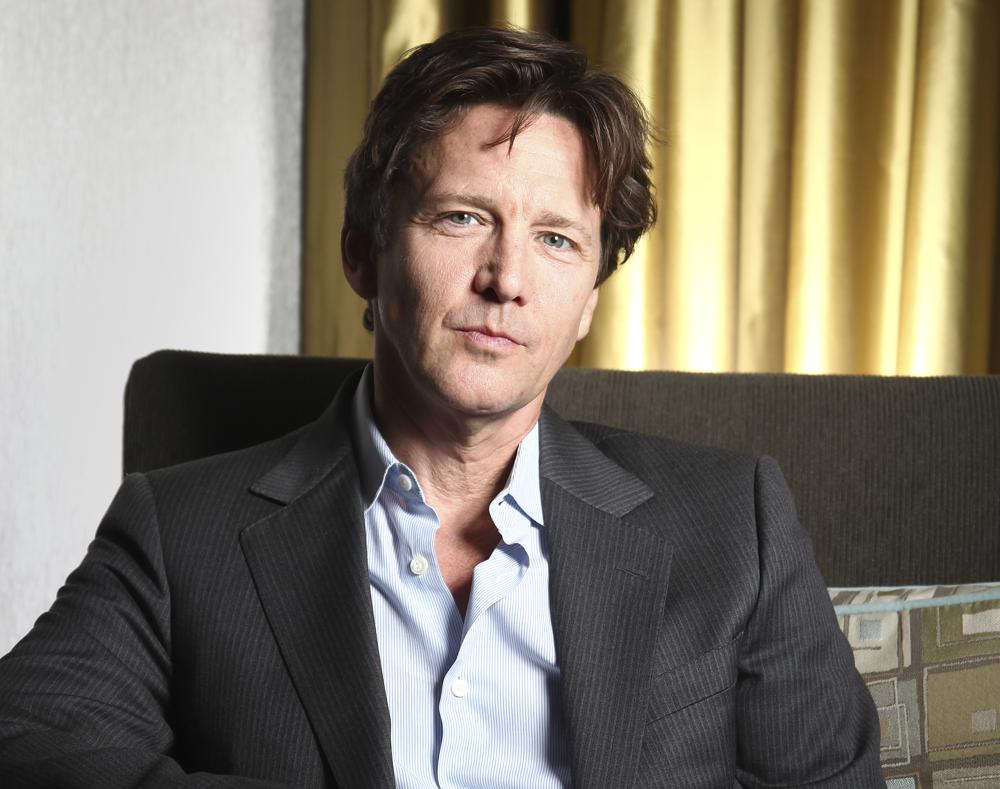

Andrew McCarthy admits he “fled” from his shaggy-haired 1980’s persona and didn’t look back for decades. Much like the slouchy blazers he wore in movies like “Pretty in Pink” and “St. Elmo’s Fire,” that Brat Pack moniker and image never really fit. But time has put a soft filter on that era for the actor and he’s ready to reflect on his early days as a movie star in his new memoir, “Brat: An 80’s Story,” which debuts this week.
Now a TV director, acclaimed travel writer, and best-selling author, McCarthy has been busy in recent years, if under the radar. He decided it was the right time to look back on his early life in acting and share stories about his adventures in Hollywood, complicated family relationships, addiction and recovery.
The book helps explain the evolution of the Brat Pack — a group of young actors including Molly Ringwald and Judd Nelson who dominated movies in the 1980’s and set cultural trends — and how McCarthy and others swept into its vortex became the nostalgic “avatar of people’s youth.”
In a recent interview with The Associated Press, he discussed reconciling his Brat Pack membership, his kids choosing to act, and which of his movies should be remade.
Responses have been condensed for brevity and clarity.
Why write the book now?
McCarthy: I think I probably grew up enough to look at it. It was certainly one of, if not the defining, sort of moments in my life. My life changed because of that. And we wouldn’t be talking if those couple of years hadn’t happened. I think it came at me so quickly when I was young that I just sort of fled from it and it took me just a long time to sort of go, “Let’s look under that rock.” It was actually quite liberating to me.
Some may be surprised to read about your alcohol abuse during that time. Was that difficult to write about?
McCarthy: There were three things that were dominant in my life in that period in the 80’s. If I was going to capture it, I needed to look at all three of them, which was being successful in movies, my drinking and my relationship with my father. If you wrote about any two, without the other one, it’s incomplete, like a stool that would have tipped over. It felt like I had to sort of address that.
You explain the evolution of the Brat Pack. How do you look at that now?
McCarthy: I’m a pretty solitary person in many ways, and so I wasn’t in the center of a group of friends. And I lived in New York, they all lived in L.A., and they were very nice to me. I didn’t feel alienated by them, I felt a bit alienated from them, just because that’s my nature… And I suppose it took me so many years to write the book, to really come to terms with that, what that whole notion of the Brat Pack was and became and is, because I think they’re very different things. When I started, it was cast in this very sort of pejorative way. And it’s evolved over time to be this kind of nostalgic memory of youth that we all our generation looks back on so fondly. And I’m sort of the avatar of people’s youth in a certain way… It took me a long time to kind of embrace that notion, but that’s sort of a beautiful thing.
You include some fun stories about being young in Hollywood. When was the moment you most wondered “How did I get here?”
McCarthy: Early on, getting my first movie and suddenly doing love scenes with Jacqueline Bisset, that was like, “Oh my God, what just happened to me?” After that, everything else sort of paled in the degree of “How did I get from here to there?”
Your teen daughter and son are both acting. How do you feel about that choice?
McCarthy: Acting save my life, you know? It almost cost me my life in a certain way, but it saved my life. It gave me a place in the world. I felt like me when I did it. And I’d never felt that way before I did it. And I was able to locate myself in acting. And if someone else feels that way, who am I to tell them not to do that? My kids certainly didn’t grow up with any illusions about how glamorous and wonderful it all is, because it’s a job.
How do you view your 80’s movies and should they be remade?
McCarthy: Those movies suddenly took young people seriously in a way that movies hadn’t really, that their struggles and their emotional life — which is massive — it was valid and real. And I think we kind of take that for granted now, whereas in those days that was not represented before in film. So that was a big revelation… But if people want to remake them it wouldn’t matter to me. I think “St. Elmo’s Fire”… pick up those guys 30 years later, they’re all old and fat, you know? (laughs) The only one that probably should be remade is “Weekend at Bernie’s.” (laughs)